With: Jennifer Lyn Morone, Daniela Brugger, Susanne Hofmann-Souki (Open-Source Seeds) and Michael Wirths (Topio – public space for privacy).
What do seeds and software have in common? Can art be understood as common property? During the 6th edition of World of Noon, we will discuss different projects that are inspired by the open-source software movement and the phenomenon of commons. While having a look at how self-organised, collaborative processes are playing a role in research-based and artistic projects, we will talk about what this means in terms of autonomous and individual forms of expression and artistic authorship.
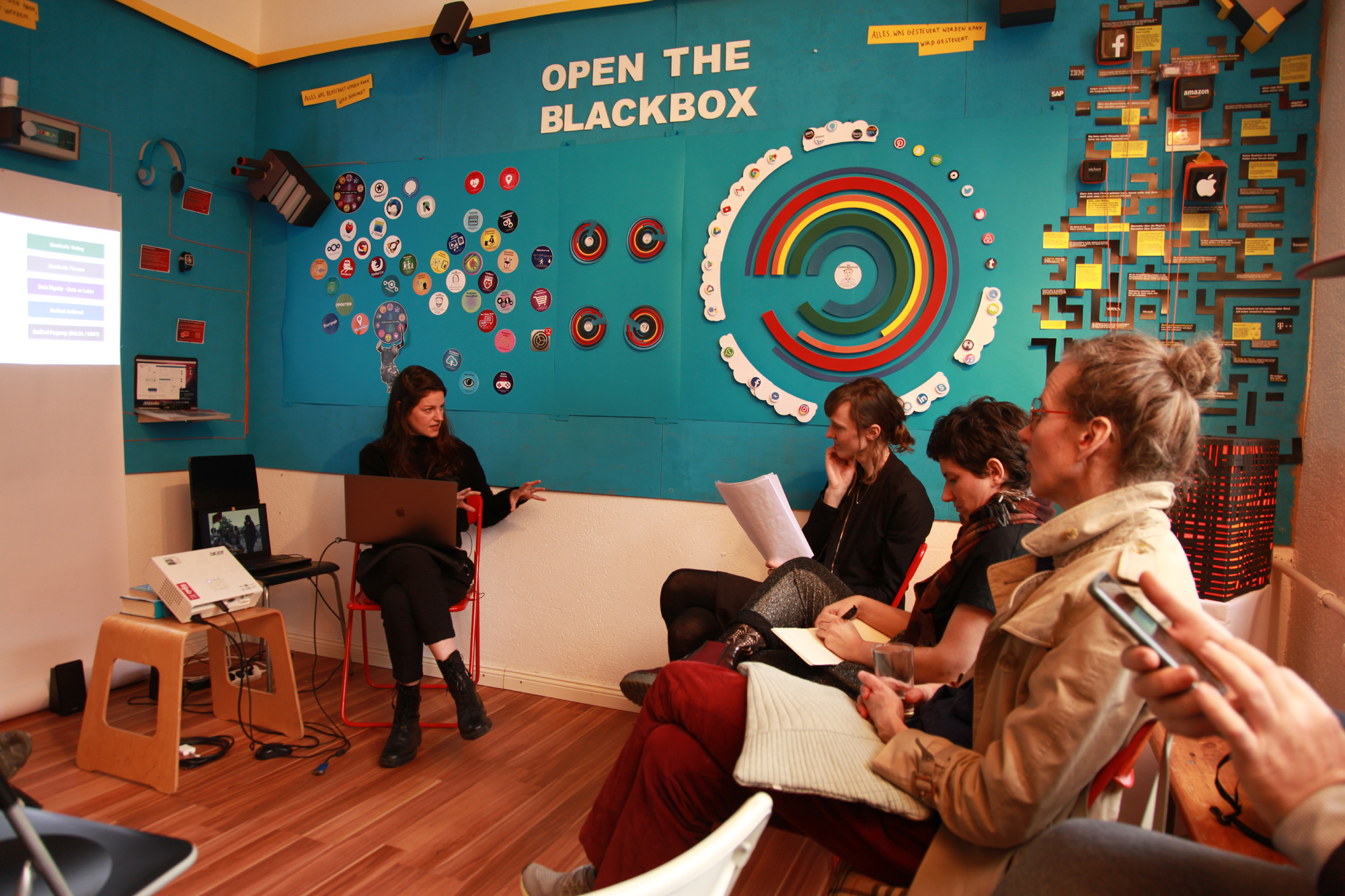 "jennifer Lyn Morone during her presentation at Topio, 2020. Photo: Leila Benbaouche
"jennifer Lyn Morone during her presentation at Topio, 2020. Photo: Leila Benbaouche
About the participants:
Daniela Brugger will tell us more about her artistic practise as a form of exchange, the effort of bringing people together. In doing so, she actively ignores the boundaries of disciplines and sees informal knowledge production and dissemination as a resistant and solidary form of organisation. Fascinated by simultaneous states of being, she is captivated by alteration as a continuous condition. Her practice involves different media such as installation, video, writing, performance and collaborative projects. She is the initiator of Who writes his_tory? – a collaborative project that questions the reproduction of knowledge and structural discrimination on the Internet and especially on Wikipedia as well as a European ambassador of the global campaign Art+Feminism.
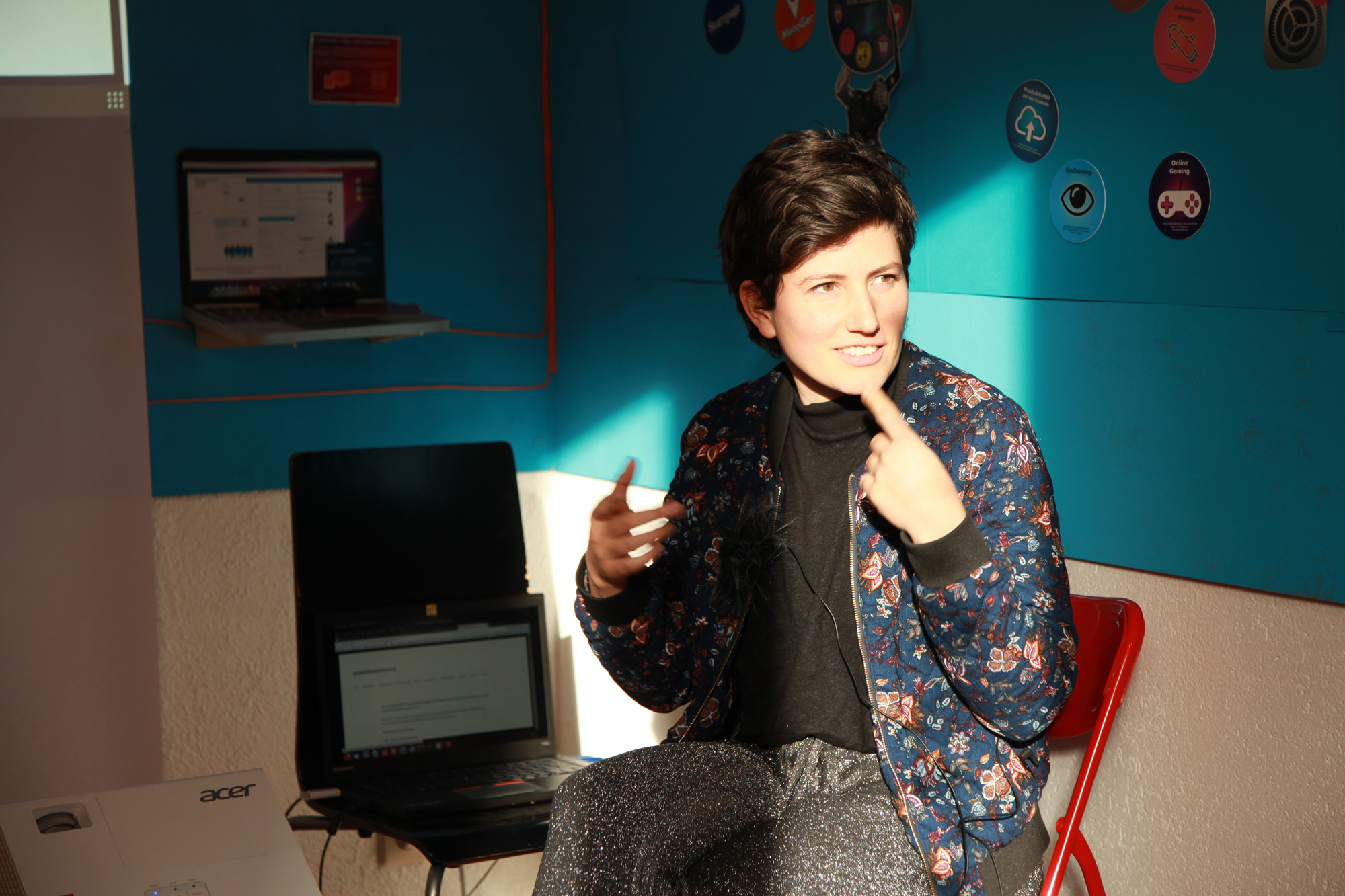 "Daniela Bruger during her presentation at Topio, 2020. Photo: Leila Benbaouche
"Daniela Bruger during her presentation at Topio, 2020. Photo: Leila Benbaouche
Born in Dresden, GDR, Susanne Hofmann-Souki has experienced two socio-economic systems: a state-led system during her youth and a market-centred system after the end of GDR. Her engagement with Open-Source Seeds has moved her focus to commoning as a space and practice of social organisation outside of state and market principles. Since, she has learnt that commoning happens everywhere – often unnoticed – and that practices which are not used will eventually disappear. Just as seeds need to be constantly exchanged, sown, and bred into new varieties, so that agriCulture can be maintained. She has a background in agricultural economics and spent 12 years as a university lecturer and coordinator of international transdisciplinary projects. She now works as an independent consultant, facilitator and trainer. More than 200 varieties of edible plants grow in her garden.
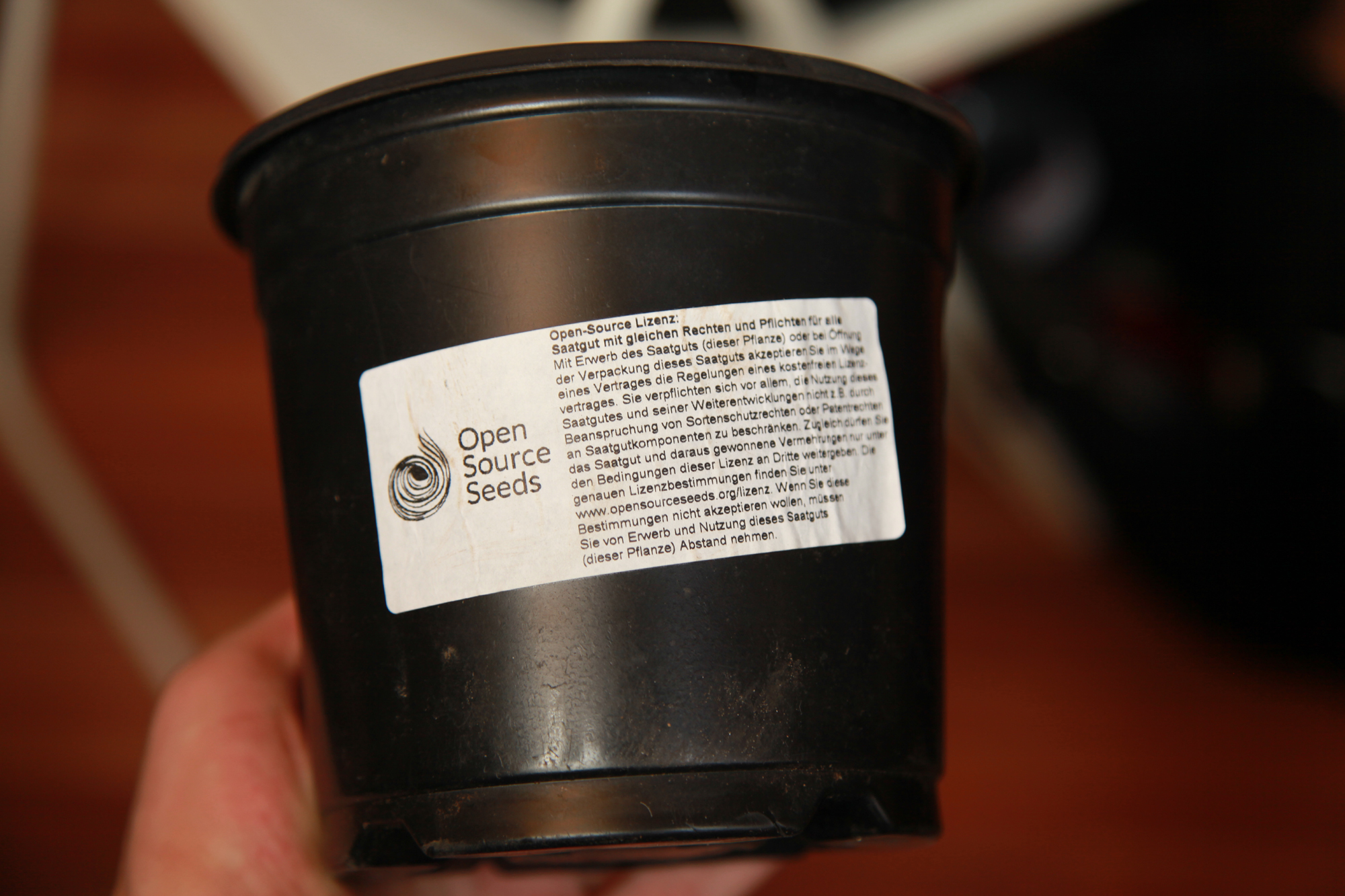 "Open Source Seeds declaration, Topio, 2020. Photo: Leila Benbaouche
"Open Source Seeds declaration, Topio, 2020. Photo: Leila Benbaouche
Jennifer Lyn Morone will present her work COOP, that circles around private data and the interwoven questions as to who owns our so-called private data and what their value is in a society based on data processing. Morone is an artist, activist, and design researcher whose work focuses on the human experience in relation to technology, economics, politics, and identity and the moral and ethical issues that arise from such systems. Her interests lie in exploring ways of creating social justice and equal distribution of the future.
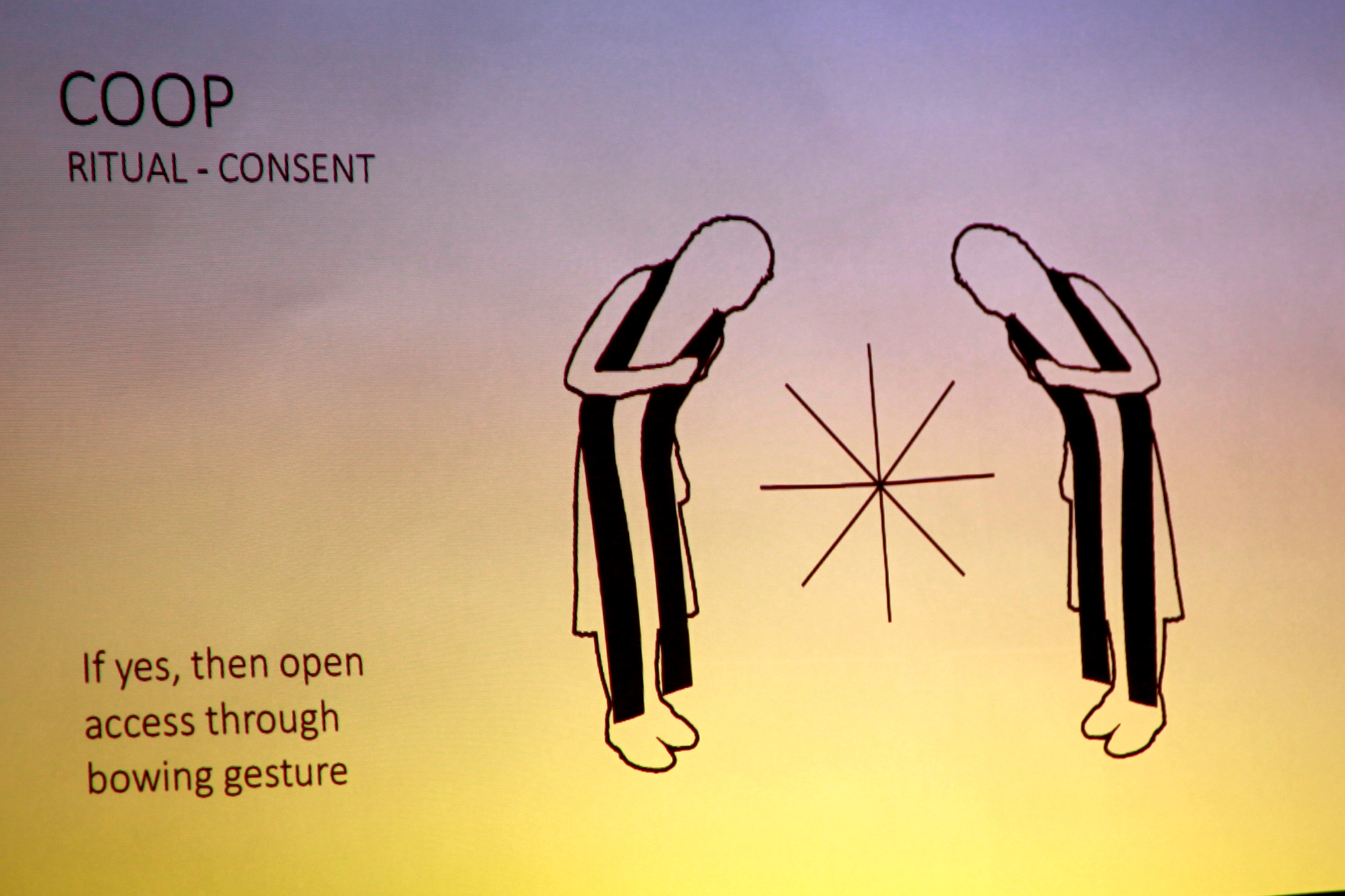 COOP – Jennifer Lyn Morone – Panke Gallery, 2019
COOP – Jennifer Lyn Morone – Panke Gallery, 2019
Michael Wirths is the founder of Topio – public space for privacy. The research and project space deals with societal questions concerning digital transformation. Topio is committed to drawing attention to open and diverse digital applications and platforms and to enabling citizens to freely participate in an everyday digital life.
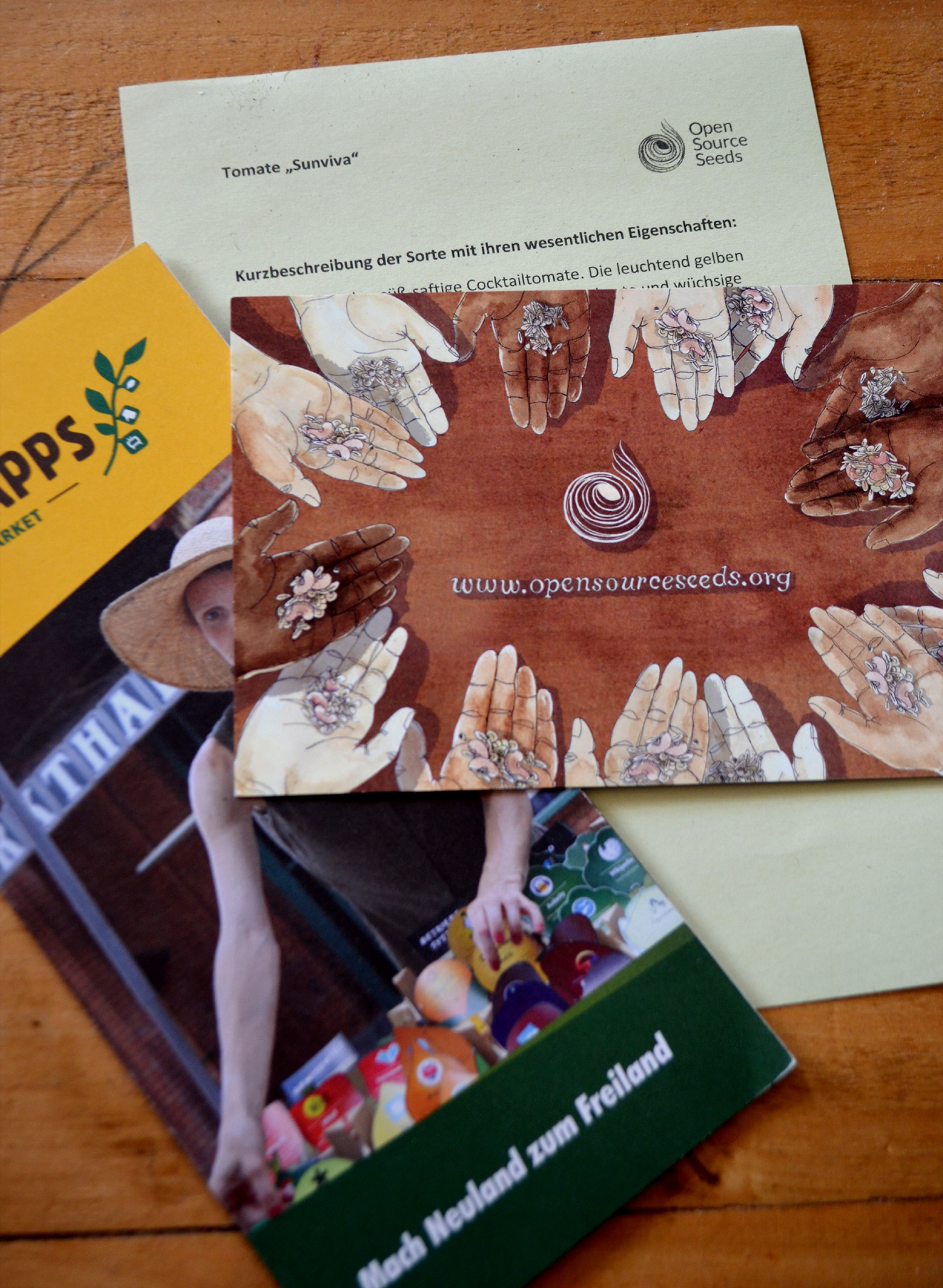 Info Flyer Open Source Seeds, 2020
Info Flyer Open Source Seeds, 2020
This event was made possible with the kind support of the Berlin Senate for Culture and Europe. Photo image header by Aleksander Komarov.